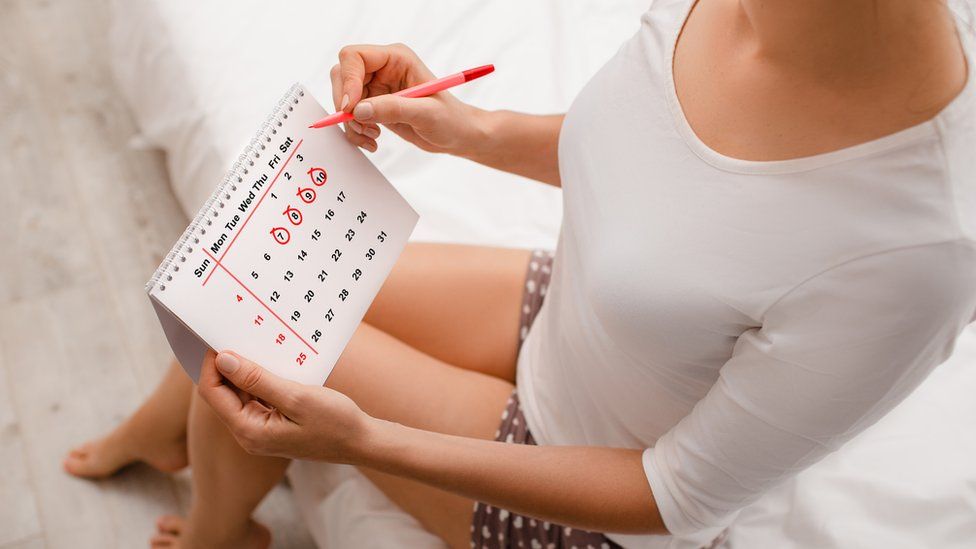Studies confirm cycles quickly return to normal, a leading reproductive expert in the UK says.

Image source, Getty Images
Small changes to periods can follow a Covid vaccine but they quickly return to normal, a leading UK menstruation expert writes in the BMJ.
Dr Victoria Male, from Imperial College London, called studies from the US and Norway which tracked women’s cycles “reassuring”.
And she blamed misinformation for fuelling concerns over infertility.
The UK regulator says there is no evidence Covid vaccines affect the ability to have children.
The Medicines and Healthcare products Regulatory Agency (MHRA) has received more than 37,000 reports of unexpected vaginal bleeding, heavier and delayed periods after a Covid jab.
It has always said there is no evidence of a link to the vaccine, because women’s cycles vary naturally – but scientists called for more research.
A US study of nearly 4,000 women using a menstrual-cycle tracking app found their next period was delayed by half a day after a second vaccine dose, but there was no delay after the first.
Common complaint
Those who had two doses in the same cycle had a two-day delay but, Dr Male said, that was unlikely among women in the UK, where the gap between doses is at least eight weeks.
The cycle length of one in 10 of the women changed by more than eight days – compared with one in 25 unvaccinated women – but after just two cycles, their periods returned to normal.
Another study, of more than 5,600 people in Norway, shows how much periods can vary naturally.
Nearly 40% saw at least one change, even before being vaccinated – with the most common complaint heavier than normal bleeding.
Dr Male said: “Changes to the menstrual cycle do occur following vaccination – but they are small compared with natural variation and quickly reverse.”
Women’s concerns arose “from misinformation that Covid-19 vaccines cause female infertility”, she said.
And more studies of pregnancy rates in couples trying to conceive were needed to make it clear they do not.
A Covid infection, however, “may reduce sperm count and quality” – and understanding more about that would mean patients could be given the right advice.
A study of UK users of the same menstrual-cycle tracking app is expected soon.
The “low priority” of menstrual and reproductive health meant it had taken a long time to reach this point, Dr Male added.
About 51 million doses of Covid vaccine have been given to women in the UK.